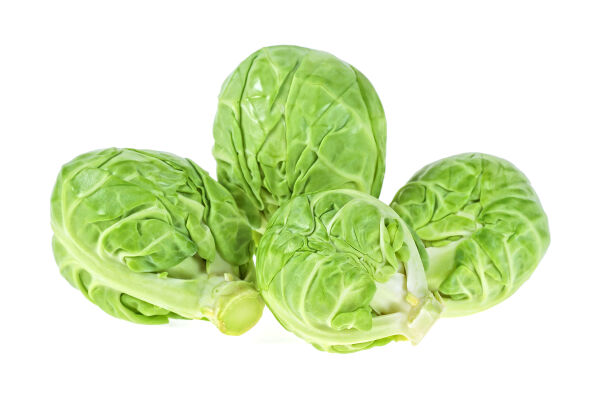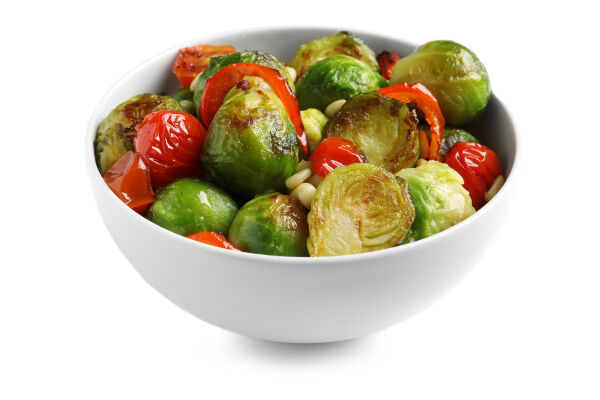Brussels Sprouts
Brussels Sprouts are a type of vegetable commonly used in grain dishes, grills, bbq, salads, and much more!
The flavor profile for brussels sprouts can be described as bittersweet and nutty.
Brussels Sprouts contain over 19+ nutrients including 10 vitamins and 9 minerals. Brussels Sprouts are also low in sodium and trans fat free.
Vegan
Vegetarian
Paleo
Gluten Free
Uses For Brussels Sprouts
There are 5 uses for brussels sprouts. Find your use and start enjoying this tasty food today!
Tips
Great ideas for purchasing, storing, and consuming brussels sprouts.
- When buying Brussels sprouts at the store, look for leaves that still have their green color intact. They should be closed together tightly and bright green or purple. Don’t buy them if the leaves look wilted or dried out.
- To store Brussels sprouts after you’ve bought them, try to keep them in a cold place—a fridge is ideal, but if you can’t do that, put them in a cool area of your house (like a garage or basement).
- Do not remove outer leaves or wash them until ready to cook.
- When you’re ready to cook them, fill a large pot with water and bring it to a boil over high heat. Once it’s boiling, add the Brussels sprouts and cook them for about 7 minutes until they are tender but still firm.
- You can also roast Brussels sprouts by tossing them in olive oil, salt, and pepper. Then roast them in the oven at 400 degrees until they are golden and tender.
Nutrition
Checkout the facts and figures to see how wealthy brussels sprouts are.
Nutrition Facts
1 Serving
Serving size
Brussels Sprouts - Fresh
100 Grams
100 Grams
Amount per serving
Calories
per serving
43
Amount/serving
% Daily Value*
Total Fat 0g
0%
Saturated Fat 0g
0%
Trans Fat 0g
Cholesterol 0mg
0%
Sodium 25mg
1%
Amount/serving
% Daily Value*
Total Carbohydrate 9g
7%
Dietary Fiber 4g
14%
Total Sugars 2g
Includes 0g Added Sugars
0%
Protein 3g
7%
Vitamin K 197%
·
Vitamin C 113%
·
Manganese 19%
·
Vitamin B6 17%
·
Folate 15%
·
Thiamin 13%
·
Phosphorous 10%
·
Riboflavin 8%
·
Potassium 8%
·
Copper 8%
·
Iron 8%
·
Magnesium 7%
·
Vitamin E 6%
·
Pantothenic Acid 6%
·
Niacin 5%
·
Vitamin A 5%
·
Zinc 5%
·
Choline 4%
·
Calcium 4%
·
Selenium 3%
·
* The % Daily Value (DV) tells you how much a nutrient in a serving of food contributes to a daily diet. 2,000 calories a day is used for general nutrition advice.
Highlights
- High in fiber.
- Low in sodium.
- Excellent source of 2 micronutrients.
- Good source of 4 micronutrients.

